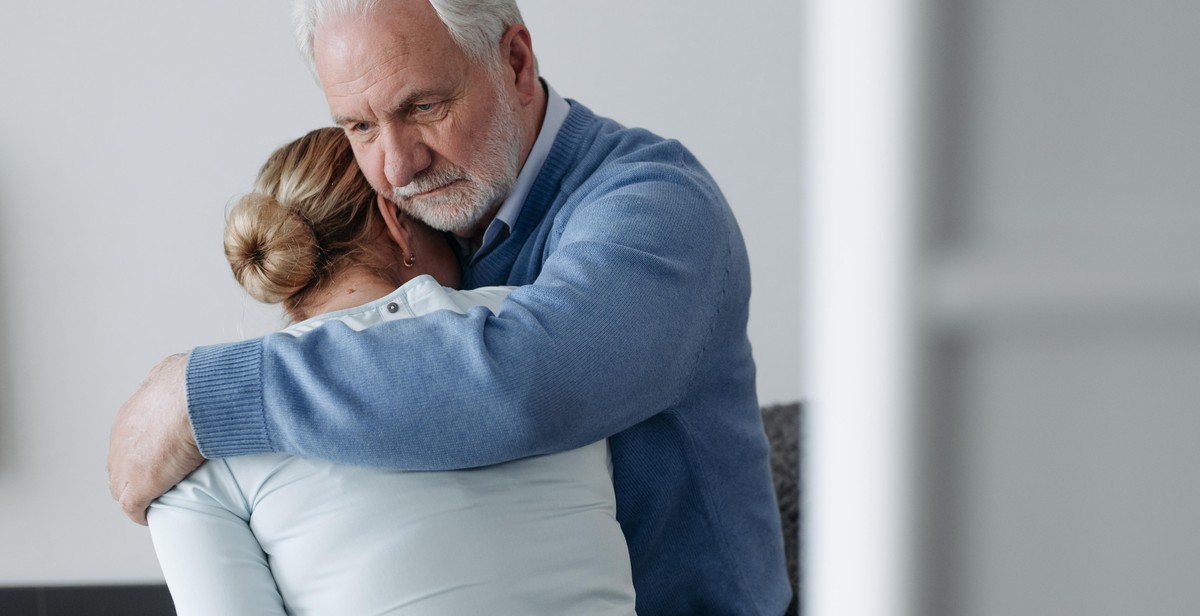Dating After Loss: How to Navigate Grief While Seeking Love
Experiencing the loss of a loved one can be an emotional rollercoaster of grief. It takes time to heal and move on, and the idea of dating again can seem daunting. However, it is possible to find love after loss. The key is to navigate the grieving process in a healthy way.
The Emotional Rollercoaster of Grief
The grieving process can be overwhelming and unpredictable. It is normal to experience a range of emotions, including sadness, anger, guilt, and confusion. These feelings may come and go in waves, and it is important to allow yourself time to process and heal.
The Importance of Grieving Before Dating
Before seeking love again, it is important to take the time to grieve and work through your emotions. Jumping into a new relationship too soon can be detrimental to your healing process and may lead to unresolved emotions and issues. It is important to give yourself time to heal and find closure before pursuing a new relationship.
The Benefit of Seeking Professional Help
If you find yourself struggling with the grieving process, seeking professional help can be beneficial. A therapist or counselor can provide support and guidance as you navigate your emotions and work towards healing. They can also help you identify when you are ready to start dating again and how to approach it in a healthy way.

Taking the First Step
After experiencing a significant loss, such as the death of a partner or a divorce, it can be challenging to start dating again. However, there is no specific timeline for when to start dating again. It is a personal decision that depends on various factors, including the individual’s emotional readiness and the nature of their loss.
It is essential to take the time to grieve and work through the emotions associated with the loss before considering dating again. Rushing into a new relationship without fully processing the previous one can lead to more pain and complications in the future.
How to Meet New People
Meeting new people can be difficult, especially after experiencing a loss. However, there are various ways to expand your social circle and meet new potential partners. Consider joining a support group or a social club that aligns with your interests and hobbies. Attend events and gatherings that you enjoy, and be open to meeting new people.
Online dating can also be a useful tool for meeting new people. However, it is crucial to be cautious and take the necessary safety precautions when using dating apps and websites.
The Importance of Open Communication
When starting to date again after a loss, it is essential to communicate openly and honestly with potential partners. Be clear about your intentions and your emotional state, and listen to their needs and expectations. It is crucial to be patient and understanding with yourself and others.
Communication is also essential when it comes to discussing the previous loss. It is okay to talk about it and share your feelings, but it is essential to do so in a healthy and productive way. Be mindful of how you and your partner communicate about the loss and how it may impact your relationship.
| Key Takeaways: |
|---|
| – Take the time to grieve and work through emotions before considering dating again. |
| – Join support groups or social clubs to meet new people. |
| – Communicate openly and honestly with potential partners. |
| – Be patient and understanding with yourself and others. |
Navigating the Dating Scene
After experiencing a loss, it can be challenging to navigate the dating scene. However, it is possible to find love again while still honoring your grief. Here are some tips for navigating the dating scene after loss:
Dealing with Triggers and Reminders
It is essential to recognize that dating after loss can trigger grief and remind you of your loved one. Triggers can be anything from a song to a particular place or activity. When you are triggered, it is okay to take a break from the dating scene and focus on your healing.
If you decide to continue dating, it is crucial to communicate your triggers with your partner. This way, they can be supportive and understanding when you need it.
When to Share Your Loss
When to share your loss with a potential partner is a personal decision. Some people prefer to share early on, while others wait until they feel more comfortable. There is no right or wrong answer, and you should do what feels right for you.
However, it is essential to be honest with yourself and your partner about where you are in the grieving process. This way, they can understand your needs and support you through your healing journey.
How to Recognize When You’re Ready for a Relationship
It can be challenging to know when you are ready to start dating after a loss. However, some signs can indicate that you are ready.
- You are no longer in the acute stage of grief
- You have processed your emotions and accepted your loss
- You have a support system in place
- You are open to new experiences and meeting new people
If you feel like you are not ready, it is okay to take more time to heal. Remember, everyone’s healing journey is unique, and there is no timeline for when you should start dating again.
| Tip | Takeaway |
|---|---|
| Communicate your triggers with your partner | Build a supportive and understanding relationship |
| Be honest about where you are in the grieving process | Set expectations and boundaries in your relationship |
| Listen to your gut | Take your time and only date when you feel ready |

Building a Healthy Relationship
Building a healthy relationship after experiencing loss can be challenging, but it is possible. Here are some key factors to consider:
Setting Realistic Expectations
It is important to set realistic expectations for yourself and your potential partner when seeking a new relationship after loss. Understand that grief is a process, and it may take time to fully heal and move forward. Be patient with yourself and your partner, and communicate openly about your needs and boundaries.
Additionally, it is important to recognize that no relationship is perfect. There will be ups and downs, and it is important to approach any new relationship with a realistic and open mindset.
The Importance of Self-Care
Self-care is crucial when navigating grief and seeking love. Take time to prioritize your mental and emotional well-being, and engage in activities that bring you joy and fulfillment. This can include exercise, meditation, therapy, or spending time with loved ones.
It is also important to set boundaries and prioritize your own needs in any new relationship. Remember that you are not responsible for fixing or healing your partner, and it is crucial to prioritize your own emotional health and well-being.
The Benefit of Support Systems
Having a strong support system can be incredibly beneficial when navigating grief and building a new relationship. This can include family, friends, or a therapist who can offer guidance and support throughout the process.
Additionally, it can be helpful to seek out support groups or online communities for those who have experienced similar losses. These groups can offer a sense of community and understanding, and can provide a safe space to process emotions and share experiences.
| Key Takeaways: |
|---|
| • Set realistic expectations for yourself and your partner |
| • Prioritize self-care and set boundaries in any new relationship |
| • Build and maintain a strong support system |

Conclusion
Dating after a loss can be a challenging and emotional journey. However, it’s important to remember that there is no right or wrong way to navigate grief while seeking love. Each person’s experience is unique, and what works for one person may not work for another.
It’s crucial to take the time to heal and process your emotions before jumping into a new relationship. This will not only benefit you but also your potential partner. Being open and honest about your past experiences and emotions will also help build a strong foundation for a new relationship.
Remember that grief is a process, and it’s okay to take things slow. Don’t rush into anything and listen to your intuition. If something doesn’t feel right, it probably isn’t.
Communication is key in any relationship, but especially when navigating grief. Be sure to communicate your needs and boundaries clearly with your partner. This will help avoid any misunderstandings and will help build a stronger relationship.
Lastly, don’t forget to take care of yourself. Self-care is crucial during the grieving process and should continue to be a priority in any new relationship.
- Take time for yourself
- Seek support from loved ones or a therapist
- Engage in activities that bring you joy
Remember, it’s possible to find love after loss. With patience, self-care, and open communication, you can navigate the journey and find a fulfilling and loving relationship.
